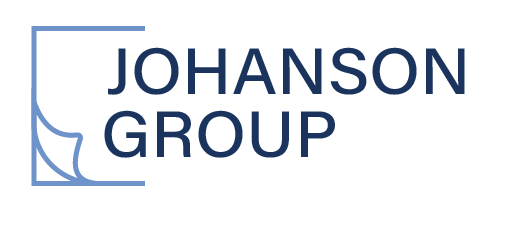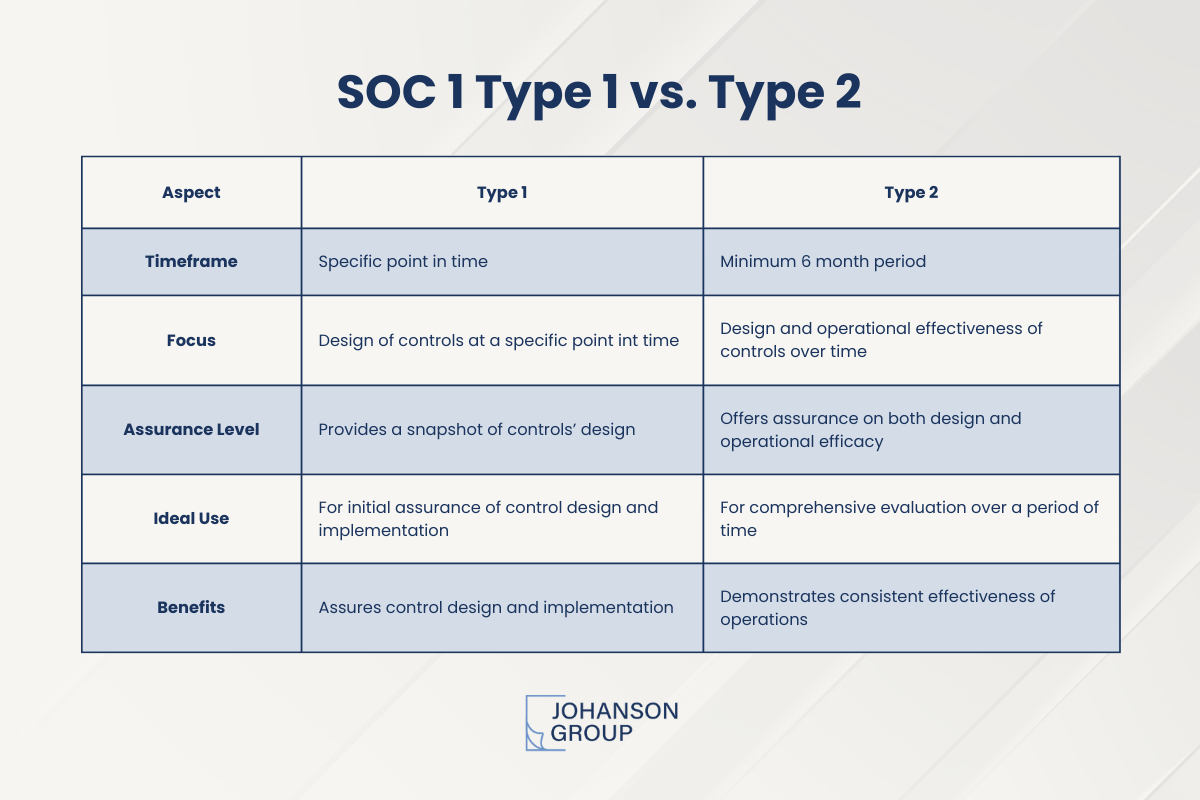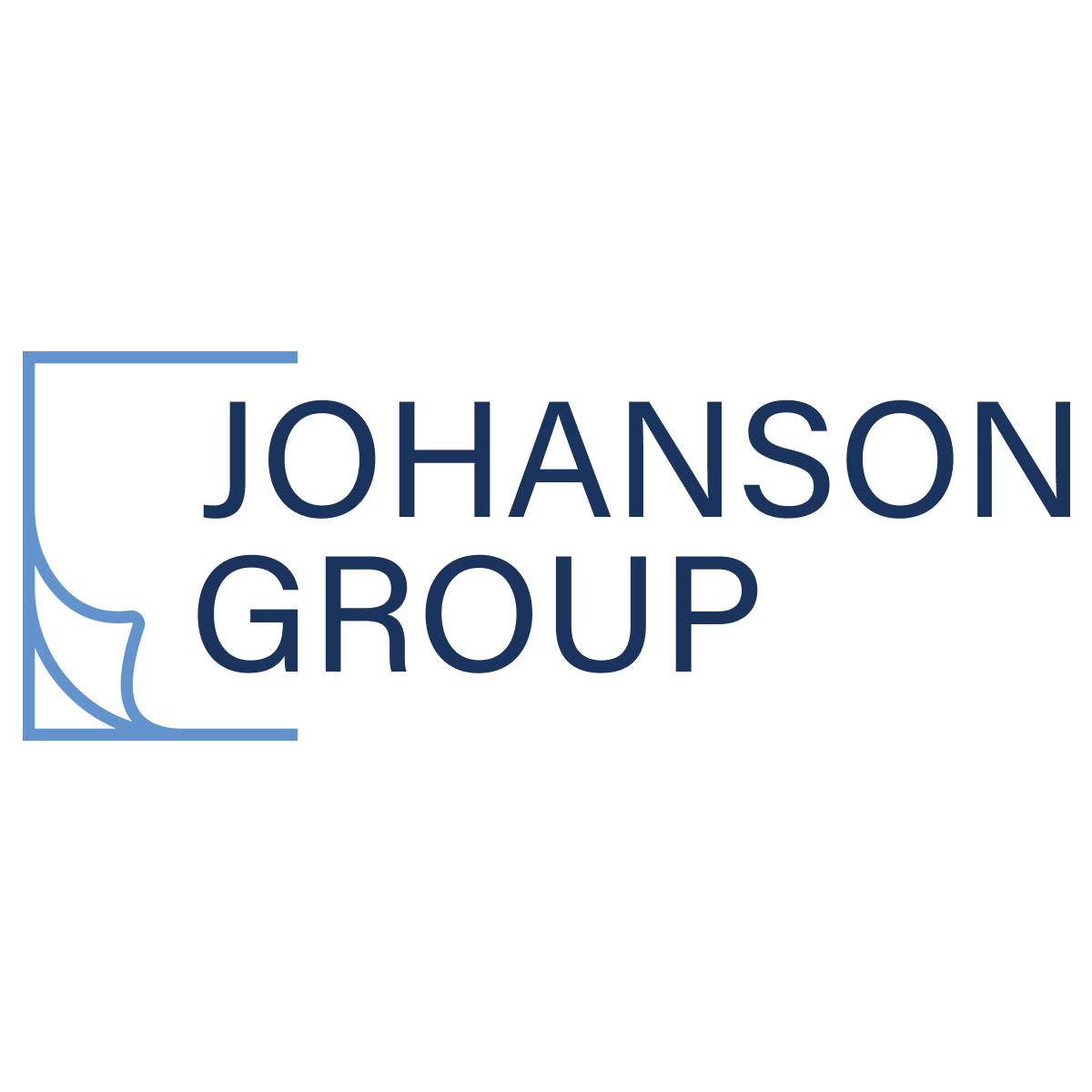Understanding the Differences: SOC 1 Type 1 vs. Type 2
SOC 1 audits are particularly vital for service organizations entrusted with handling clients' financial data. However, the disparity between SOC 1 Type 1 and Type 2 audits often confounds many. Let's embark on a journey to unravel the intricacies of these audits, empowering you to make informed decisions for your organization's compliance needs.
What is a SOC 1 Audit?
Before delving into the nuances of SOC 1 Type 1 and Type 2 audits, it's essential to grasp the fundamental concept of a SOC 1 audit. SOC, or Service Organization Control, is a set of auditing standards developed by the American Institute of Certified Public Accountants (AICPA). These standards are designed to assess the effectiveness of a service organization's internal controls over financial reporting. In essence, SOC 1 audits provide assurance to stakeholders regarding the accuracy and reliability of the financial information processed by service organizations.
What is a SOC 1 Type 1 Audit?
A SOC 1 Type 1 audit is an evaluation conducted by an independent auditor to assess the fairness of the description of a service organization's system and the suitability of the design of its controls at a specific point in time. In simpler terms, it scrutinizes the organization's control environment and evaluates whether the controls are appropriately designed to achieve specified control objectives. However, it's essential to note that SOC 1 Type 1 audits do not assess the operational effectiveness of these controls over time; instead, they provide a snapshot of controls at a particular moment.
READ MORE: SOC 1 vs SOC 2 vs SOC 3: Understanding the Differences
What is a SOC 1 Type 2 Audit?
On the contrary, a SOC 1 Type 2 audit delves deeper into the operational effectiveness of controls. In addition to evaluating the design of controls, it assesses how well these controls have been functioning over a minimum period of six months. This extended evaluation period provides stakeholders with greater assurance regarding the consistency and reliability of the service organization's control environment. SOC 1 Type 2 audits offer a comprehensive assessment of whether the controls specified in the organization's description are operating effectively throughout the specified period, providing stakeholders with valuable insights into the organization's control environment's ongoing performance.
Frequently Asked Questions
-
The choice between SOC 1 Type 1 and Type 2 audits depends on your organization's specific needs and the level of assurance stakeholders require. Type 1 audits provide a baseline assessment, while Type 2 audits offer ongoing validation of controls' effectiveness.
-
The frequency of SOC 1 audits varies based on factors such as regulatory requirements, industry standards, and client demands. However, annual audits are common, with some organizations opting for more frequent assessments to stay ahead of evolving risks.
-
Yes, some organizations choose to undergo a SOC 1 Type 1 audit initially to establish a baseline understanding of their control environment and follow up with a Type 2 audit for ongoing validation and assurance.
Choose Johanson Group for Your Next SOC Audit
Navigating the complexities of SOC 1 audits requires expertise and dedication to compliance excellence. At Johanson Group, we specialize in delivering tailored SOC audit services designed to meet your organization's unique needs. Whether you're seeking a baseline assessment with a Type 1 audit or comprehensive assurance with a Type 2 audit, our team of experienced professionals is committed to guiding you through the audit process seamlessly.
Choose Johanson Group as your trusted partner for SOC compliance, and embark on a journey towards enhanced transparency, reliability, and peace of mind. Contact us today to learn more about our services and take the first step towards safeguarding your organization's financial integrity.




